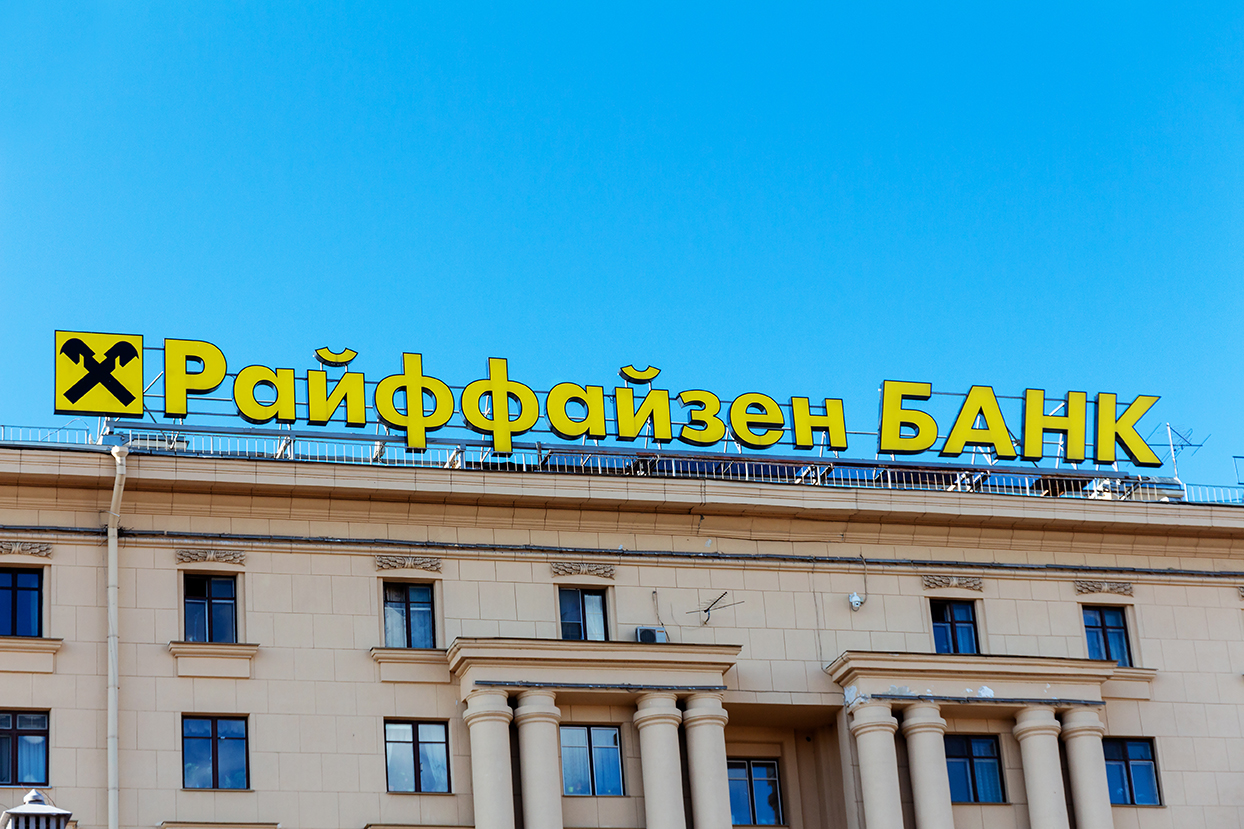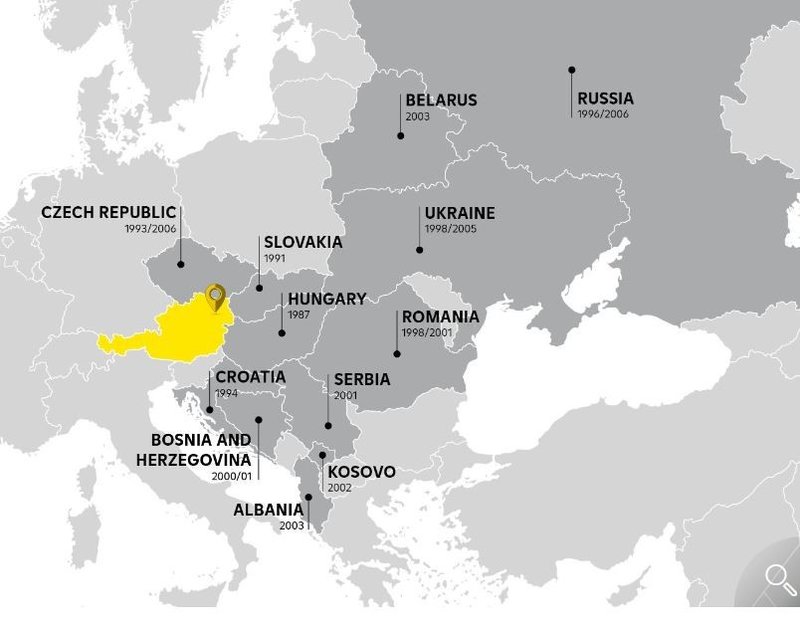Feature
Raiffeisenbank’s Russian Saga: lender defies sanctions
Raiffeisenbank, a leading player in asset finance in Central and Eastern Europe, is defying international sanctions and maintaining its foothold in Russia. Eugene Gerden (in Moscow) and Alejandro Gonzalez (in London) report.

Credit: Akintevs via Shutterstock
Being the largest Western banking institution operating in Russia, RBI plays a crucial role by offering vital financial services to numerous companies within the nation. Earlier this year, the bank hinted at downsizing its presence in Russia in response to the country’s invasion of Ukraine on February 24, 2022.
Before the events of February 2022, RBI’s Russian operations held substantial importance within the group. Alongside Italian UniCredit, Raiffeisenbank stood as one of the most significant EU-based banks operating in the Russian market.
However, last year’s landscape changed dramatically, marked by the eruption of hostilities in Ukraine and the subsequent intensification of sanctions imposed on Russia by the US, the EU, and the UK. These sanctions added layers of complexity to conducting business in Russia for RBI, prompting a US sanctions inquiry into the bank’s Russian interests earlier this year.
In January, the US Treasury Department’s Office of Foreign Assets Control (OFAC) requested RBI to clarify its payments business and related processes concerning developments in Russia and Ukraine. While RBI has expressed confidence in the adequacy of the information it provided, emphasising the general nature of the questions, the scrutiny nonetheless marked a pivotal moment.
By March 2023, RBI, announced its intention to either divest its Russian subsidiary or separate its operations. However, months of searching for a buyer proved fruitless, compelling RBI to opt for spinning off its Russian operations to avoid a complete unwinding.
Reports suggest that RBI is considering transferring the business to shareholders to maintain financial ties between Vienna and Moscow, while safeguarding the group’s reputation amid the Ukraine conflict. Yet, the question remains whether the new entity would be entirely independent of RBI, a factor pivotal to determining whether Austrian or European Central Bank oversight should apply.
Johann Strobl, CEO of RBI, recently announced a postponement in the spin-off of the Russian subsidiary until at least the year's end, despite an initial target of September 30. RBI has yet to submit its exit plan to the ECB, a process that would likely require approval from Russian authorities, with potential impediments looming.
Austria's Chancellor, Alexander Schallenberg, has publicly defended the bank, arguing that Raiffeisen should not face disproportionate scrutiny, given that it operates similarly to many Western companies still engaged in business with Russia. He emphasized that Raiffeisen plays a role in financing activities in Russia for Western states and companies, and singled out the US inquiry as a potential source of hazard for Austria, which strives to be a bridge between East and West.
Operating in Russia since 1996, Raiffeisenbank remains a subsidiary of Raiffeisen Bank International AG. Notably, Russian Raiffeisenbank is one of the few major banks unaffected by Western sanctions, allowing it to conduct foreign exchange transactions in Russia without restrictions. Official data suggests that the group accounts for a significant portion of all payments between Russia and the rest of the world.

RBI Leasing Group operations in Austria and across the CEE region.
RBI's engagement in Central and Eastern Europe dates back to 1986 when it established its first subsidiary bank in Hungary, well before the region's political transition and the fall of the "Iron Curtain." It has since accrued over 30 years of experience in the region's banking sector.
In May, RBI announced a reduction in correspondent relations with banks from the CIS countries. The move was prompted by the largest bank in Kazakhstan, Halyk Bank, limiting payments related to specific industries. Other RBI clients in the region have taken similar steps.
In June 2023, Andrea Enria, Chairman of the ECB board, called for all Eurozone banks that maintained business ties with Russia to exit the country as swiftly as possible. While acknowledging the challenges associated with ceasing operations in Russia, Enria emphasised the immense reputational risks involved in continuing to operate in the country.
In a statement, a spokesperson from RBI acknowledged the exceptional circumstances brought about by the war in Ukraine. They emphasised that potential transactions regarding the sale or spin-off of Raiffeisenbank Russia would be conducted in compliance with local and international laws and regulations, in consultation with relevant competent authorities. Raiffeisenbank will maintain some operations in Russia to support customers impacted by the business reduction.
RBI said: "We are committing to further reducing business activity in Russia whilst we continue to progress such potential transactions. Raiffeisenbank will maintain some banking operations in Russia to meet the conditions of its banking license, and support customers including those impacted by the reduction in business activity in Russia. We have a duty of care to employees in all markets where RBI operates. The RBI Group has a responsibility to preserve the integrity of local operations in Russia, employing over 9,000 people."
In October 2022, Raiffeisen reported extending loans exceeding €600 million to customers, primarily in Russia and Belarus, who have since become subject to sanctions. Notably, that amount has since diminished.
RBI offers asset finance in Austria and 12 Central and Eastern European countries (including Russia) through Raiffeisen Leasing Group, which posted a balance sheet of approximately €3.7bn in December 2021.